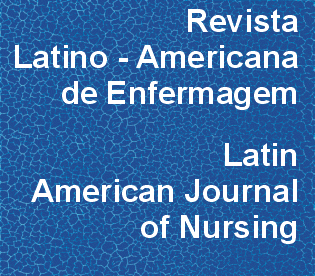Vulnerability of women living with HIV/aids
DOI:
https://doi.org/10.1590/0104-1169.2837.2377Abstract
OBJECTIVE: outline the profile of women living with the human immunodeficiency virus/aids in interior cities in São Paulo State, in the attempt to identify characteristics related to individual, social and programmatic vulnerability and to analyze the conditions in which they discovered their serological status. METHOD: between October 2008 and December 2010, a cross-sectional study was undertaken with 184 women attended at a specialized service. The data were collected through an interview and gynecological test, including the collection of samples for the etiological diagnosis of sexually transmissible conditions. RESULTS: the women were predominantly white, between 30 and 49 years of age, lived with a partner, had a low education level, multiple sexual partners across the lifetime and unsafe sexual practices. The prevalence of sexually transmitted diseases corresponded to 87.0%. CONCLUSION: the study suggests the need to offer gynecological care in specialized services and the accomplishment of multiprofessional actions to reinforce the female autonomy in protective decision making.Downloads
Download data is not yet available.
Downloads
Published
2014-01-01
Issue
Section
Original Articles
License
RLAE’s authorship concept is based on the substantial contribution by each of the individuals listed as authors, mainly in terms of conceiving and planning the research project, collecting or analyzing and interpreting data, writing and critical review. Indication of authors’ names under the article title is limited to six. If more, authors are listed on the online submission form under Acknowledgements. The possibility of including more than six authors will only be examined on multicenter studies, considering the explanations presented by the authors.Including names of authors whose contribution does not fit into the above criteria cannot be justified. Those names can be included in the Acknowledgements section.
Authors are fully responsible for the concepts disseminated in their manuscripts, which do not necessarily reflect the editors’ and editorial board’s opinion.
How to Cite
Duarte, M. T. C., Parada, C. M. G. de L., & Souza, L. do R. de. (2014). Vulnerability of women living with HIV/aids . Revista Latino-Americana De Enfermagem, 22(1), 68-75. https://doi.org/10.1590/0104-1169.2837.2377



